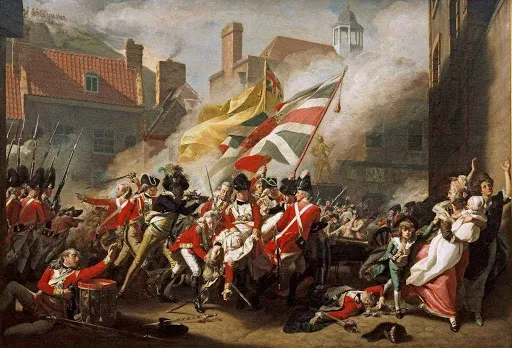
The US revolution was rather the exception than the norm, and it's one of the reasons a lot of historians refer to it as the war for independence, rather than the revolution, which is actually more accurate.
We didn't seek to subjugate the crown to colonial rule but rather just to divorce from it.
Revolutions are usually fomented by the envious classes who, once they find themselves in power, discover that they are really inept at ruling.
This is common amongst intellectual communists, who are amongst the most envious people in the world (they can conjugate Latin verbs, scan Elizabethan poetry, and name all the pharaohs, but for some strange reason no one wants to pay them for it or have sex with them).
I think it was Joseph Schumpeter who warned against this perennial problem.
America mostly solved it until the insidious rise of mandatory education and credentialist universities, by focusing on trade as a means of social intercourse rather than solipsistic self assessments based on memorization skills.
Our anti-intellectual bent is one of our greatest features and bullwarks against authoritarian communism (though the tenured professor class keeps pushing against it with varying degrees of success).
Most smart people hate that this is true, but we have to admit that it is better for the world overall even if we resent it.
Weak rulers are much more dangerous than strong rulers, which is why the communist intellectuals were so brutal. It's also impossible to have a truly classless society as long as it requires government, that was probably the point all along for the Russians- to use the proletariat as a cudgel to gain power.
It seems to me the intellectual class and black "leaders" like Al Sharpton are doing the same thing today, mouthing platitudes about equality while making sure that they remain more equal than the others, while ensuring that the successful class gets demonized and shoved to the bottom of society (while producing just enough to pay for the ruling class's lifestyle).